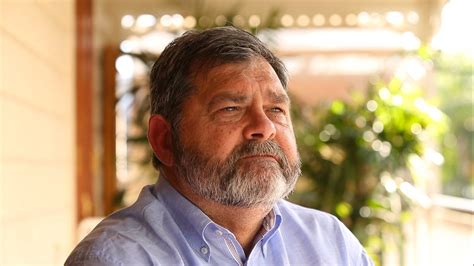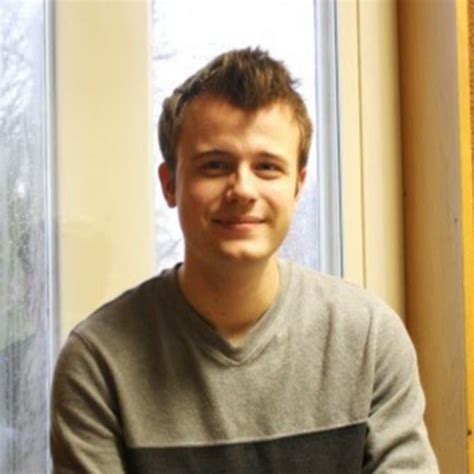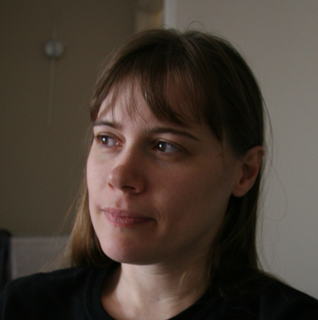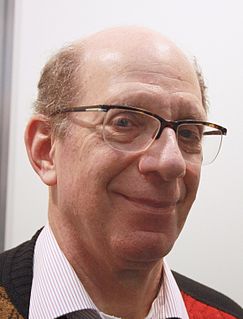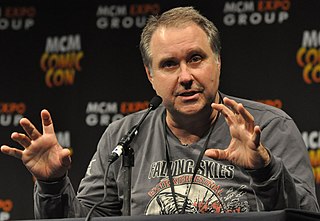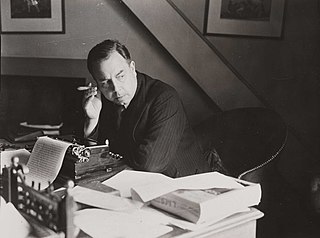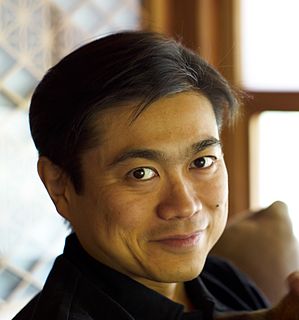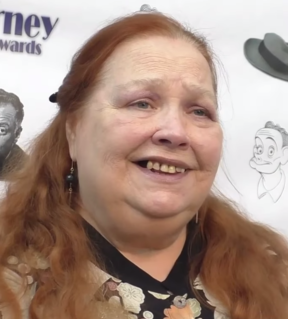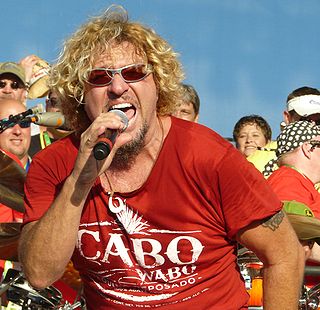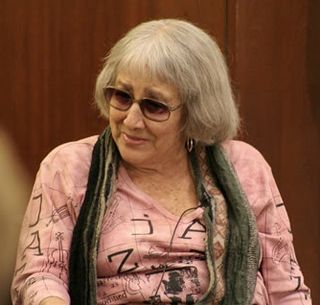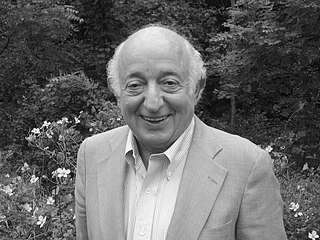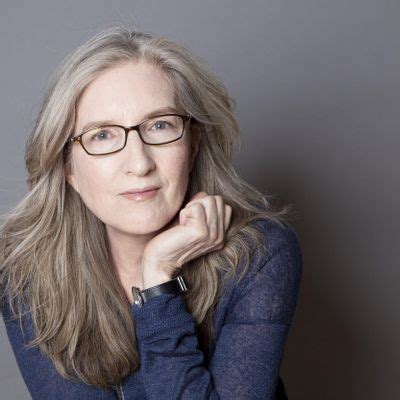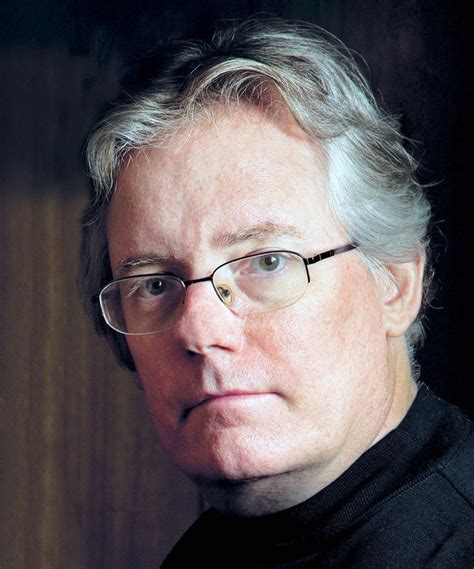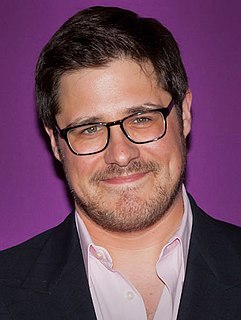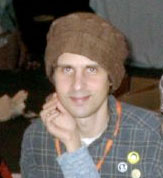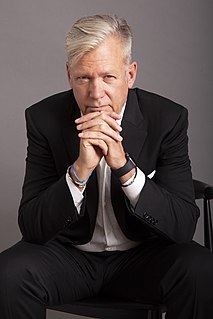Top 171 Typing Quotes & Sayings - Page 3
Explore popular Typing quotes.
Last updated on November 19, 2024.
I'm bullish on writing. Movies, radio, television, and now digital media - everything was supposed to push us away from text, to video or "back" to speech. First, there's no going back. We're always stumbling forward. Second, writing is invincible. Thirty years ago, we thought we'd all be talking to our computers; instead, we're all typing on our phones.
The world is like a sheet of paper on which something is typed. The reading and the meaning will vary with the reader, but the paper is the common factor, always present, rarely perceived. When the ribbon is removed, typing leaves no trace on the paper. So is my mind - the impressions keep on coming, but no trace is left.
I can only work between the hours of 8:30 and 4:30, because that's when the kids are at school. So I get to do all my work and have all of my fun in that time, which means just sitting on a chair, typing, alternately clicking between writing a column and being on Twitter, and smoking as many cigarettes as I can before my lungs give out.
Edward and I had not had a last grand scene of farewell, nor did I plan one. To speak the word was to make it final. It would be the same as typing the words The End on the last page of a manuscript. So we did not say our goodbyes, and we stayed very close to each other, always touching. Whatever end found us, it would not find us separated.
I'm eighty-three and homeless. It was the same when World War II ended. The Army kept me on because I could type, so I was typing other people's discharges and stuff. And my feeling was "Please, I've done everything I was supposed to do. Can I go home now?" That what I feel right now. I've written books. Lots of them. Please, I've done everything I'm supposed to do. Can I go home now? I've wondered where home is. It's when I was in Indianapolis when I was nine years old. Had a dog, a cat, a brother, a sister.
Oh, I love period dramas, especially period dramas starring Colin Firth. I'm like Bridget Jones if she were actually fat." "Oh... Colin Firth. He should only do period dramas. And period dramas should only star Colin Firth. (One-star upgrade for Colin Firth. Two stars for Colin Firth in a waistcoat.) "Keep typing his name, even his name is handsome.
There is an aesthetic crisis in writing, which is this: how do we write emotionally of scenes involving computers? How do we make concrete, or at least reconstructable in the minds of our readers, the terrible, true passions that cross telephony lines? Right now my field must tackle describing a world where falling in love, going to war and filling out tax forms looks the same; it looks like typing.
Did you dream of me?" he asked. "Yes," she admitted grudgingly. She had. She'd dreamed of his hands caressing her, of his mouth devouring her. His lush lips inched into a surprised but pleased smile. "You were naked," she told him. His grin spread; his eyes gleamed with satisfaction. "And tied up..." He arched his eye brows in smug expectation. "I did not know the idea of bondage would please you." "Oh, I love the idea of typing you up." She paused dramatically. "Just like in my dream, you'll be secured to an ant-hill and the little things will eat you alive.
I have a mouse, but don't have a mouse driver for MINIX and have never felt the need to write one. Typing "rm x y z" is a lot faster than clicking five times and then having to convince the system that you really, truly, mean it and this is not a mistake and that you are consenting adult over 18 and that you completely understand the consequences and you still want to do it.
I feel connected with people because of their sense of humor, worldview, and what they think and feel about certain existential issues (things not affected, in my view, by if someone rides a horse or drives a car or talks only IRL or only by typing), not how old they are, what they use to convey what they think and feel about certain existential issues, or if we have both watched the same TV shows or looked at the same websites.
Nowadays, it is possible to perform various forms of Low-Impact listening via the telephone. The advent of technological advances such as computer games and online services (like ones that let you check stocks) have enabled Low-Impact listeners to endure family phone calls much longer than in the past. Dangers include mouse clicks, heavy typing, or a sudden loud buzzer that goes off when you have finished Boggle.
I'm not typing. I write only by longhand. I've always written first drafts by hand and then once I was into a second or third draft I wrote insert pages on a typewriter. But I got rid of all my typewriters about three or four novels ago and now I do everything by hand. I write by hand because it makes me go slow and going slow is what I like.
It had the old double keyboard, an entirely different set of keys for capitals and figures, so that the paper seemed a long way off, and the machine was as big and solid as a battle cruiser. Typing was then a muscular activity. You could ache after it. If you were not familiar with those vast keyboards, your hand wandered over them like a child lost in a wood. The noise might have been that of a shipyard on the Clyde. You would no more have thought of carrying one of those grim structures as you would have thought of travelling with a piano.
I prefer reading novels. Short stories are too much like daggers. And now that I'm done with my collection I'm more interested in different forms of writing and other kinds of narrative art. I'm working on a screenplay. But when I was working on Eileen, I definitely felt like I was taking a piss. Like, here I am, typing on my computer, writing the "novel." It wasn't that it was insincere, but there was a kind of farcical feeling I had when I was writing.
I hate the new word processors that want to tell you, as you're typing, that you made a mistake. I have to turn off all that crap. It's like, shut up - I'm thinking now. I will worry about that sort of error later. I'm a human being. I can still read this, even though it's wrong. You stupid machine, the fact that you can't is irrelevant to me.
Writing is the basis of all, because creating something that didn't even exist before is like taking an empty canvass. It is a wonderful thing to make something out of nothing. You've got an empty page, you've got an idea, and then you start typing and that is the most thrilling thing of all. And then if it becomes a movie or something else that's a plus, but the original writing of it is what's very exciting.
First make sure that what you aspire to accomplish is worth accomplishing, and then throw your whole vitality into it. What's worth doing is worth doing well. And to do anything well, wheter it be typing a letter or drawing up an agreement involving millions, we must give not only our hands to the doing of it, but our brains, our enthusiasm, the best - all that is in us. The task to which you dedicate yourself can never become a drudgery.
Are you suggesting I’m not normal? (Nykyrian) Oh yeah, baby, you ooze normality. From the top of that assassin’s braid to the tip of those boots that I’m pretty sure conceal retractable blades. You’re just an average joe. No doubt about it. Cause, you know, everyone sits for hours doing nothing but typing. (Kiara)
Consequently, the only thing I learned in school was typing. In the old days, people like me who don't have college degrees had a hard time thriving in society. But today, the ability to learn on your own or from your peers has become really easy. I think this change is leading to a fundamental disruption in education. Independent and lifelong learning are really starting to peak - there is an inflection point coming around how people learn.
Millions of people are joined in the knowledge that writing brings insight and calm in the same way that prayer, meditation, or a long walk in the woods does. They have discovered that writing allows the racing mind to move at the pace of pen and paper or the pace of typing on the waiting screen - that journal writing is a spiritual practice.
Thinking is the activity I love best, and writing to me is simply thinking through my fingers. I can write up to 18 hours a day. Typing 90 words a minute, I've done better than 50 pages a day. Nothing interferes with my concentration. You could put an orgy in my office and I wouldn't look up-well, maybe once.
In the nineteenth century, which was a dark and inflationary age in typography, man compositors were encouraged to stuff extra space between sentences. Generations of twentieth-century typists were then taught to do the same, by hitting the spacebar twice after every period. Your typing as well as your typesetting will benefit from unlearning this quaint Victorian habit.
We don't like to talk about that in America, but there are classes in America. And she [Julia Child] was of a class of women who were wealthy, privately educated, went to Smith, moved in that sort of circle. She was conscripted into the OSS, which is the early CIA, which was all filled with Yalies and Princeton and Harvard people and a few women who were typing mostly but also had something to do.
I don't have any particular rituals, I sometimes like to write in longhand when I'm searching for ideas but I do the vast majority by typing, I can't always keep up with my thoughts longhand. I'm not a coffee shop writer because I feel obliged to order more coffee and then I end up over-caffeinated.
I mean you're given all these lessons for the unimportant things--piano-playing, typing. You're given years and years of lessons in how to balance equations, which Lord knows you will never have to do in normal life. But how about parenthood? Or marriage, either, come to think of it. Before you can drive a car you need a state-approved course of instruction, but driving a car is nothing, nothing, compared to living day in and day out with a husband and raising up a new human being.
As a child, William Beebe was my hero, and I used to read about him going down in the bathysphere, and I wanted to do that too. And I told my family, I said, 'I'd like to go down and be like William Beebe,' and they said, 'Well, maybe you can take up typing and get to be the secretary of William Beebe or somebody like him.'
I type my sermon notes into my BlackBerry, then I upload my sermon notes to my blog, my Facebook page and some of the information to my Twitter account. That's 100,000 people I'm sharing the Gospel with by the virtue of typing it into my BlackBerry as opposed to writing it down. That is being efficient with my time.
I change my keyboard between every book. I usually shop around. I'm very passionate about the physical feel of pressing the keys. It's got to have the right springiness. I tend to find the built-in keys very unsatisfying, the keys are low-profile and don't really do anything - I want it to feel like I'm typing.
The 'OK Plateau' is that place we all get to where we just stop getting better at something. Take typing, for example. You might type and type and type all day long, but once you reach a certain level, you just don't get appreciably faster. That's because it's become automatic. You've moved it to the back of your mind's filing cabinet.
My first job out of college was as an editorial assistant in a New York publishing house. Being an editorial assistant is the purgatory would-be editors must endure before they can ascend the ladder and begin acquiring books on their own. I spent a year filing paperwork, writing copy, and typing rejection letters.
I started typing diary in, I don't know, 1978 or '79, but then the computer changed that a lot. Because with the computer if you were writing and you realized you had three sentences in a row that started with the word "he," you could fix that right up, whereas on a typewriter you'd think, "Well, I'm not going to change the whole page. It's my diary." So that made a difference.
I've written about 2,000 short stories; I've only published 300 and I feel I'm still learning. Any man who keeps working is not a failure. He may not be a great writer, but if he applies the old fashioned virtues of hard, constant labor, he'll eventually make some kind of career for himself as a writer. Ray Bradbury, 1967 interview (Doing the Math - that means for every story he sold, he wrote six "un-publishable" ones. Keep typing!)
The whole point was just to be yourself, no matter what that was. You didn't have to fit into a certain punk-rock cliché. Create whatever your compelled to create. People were putting out their own records, and it just seemed natural to put out my own magazine. When I was really young, I started making magazines and little books, just folded-over pieces of typing paper, so when I discovered punk rock, it really blew my mind. I played in bands and stuff, but making my own zines seemed like an inherent part of that scene.
There was a time not long ago when stories about Internet crimes were a tough sell for TV newsmagazines. Executive producers were wary because images of people typing on keyboards and video of computer monitors did not make especially compelling TV, even when combined with emotional interviews with victims.
